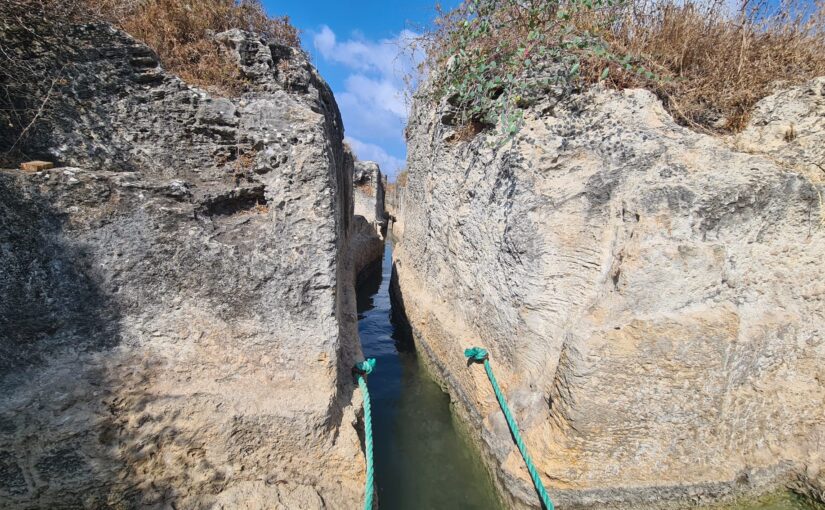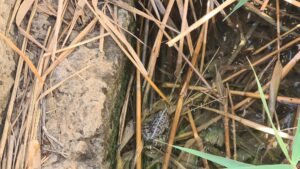Hi,
We decided to meet friends from Haifa in the middle of the way and visited Taninim stream national park.
We visited the place back in 2018. On vacation day, we got to go out and vote on the municipalities’ elections day with friends who are living in Florida. They had a baby in their hands, so we ended up missing the biggest attraction of the site: walking the water of the aqueduct.
The aqueduct led water from the reservoir behind the dam to the city of Ceaseria. And the trail let you walk in it for 260m, while the water reaches up to children chests. Funny as it is, I enjoyed it more than the kids (and the rest of the adults. I walked all the way, while the rest preferred to walk along it and not in it).
Taninim means crocodiles in Hebrew, but do not be afraid as the last one was caught here in 1912 and is shown in the Steinhardt Museum of Natural History in Tel-Aviv university.
Take Care
Gad
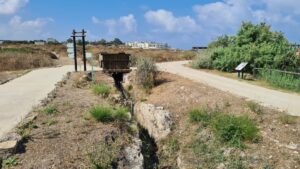 The point of entering the aqueduct water trail
The point of entering the aqueduct water trail
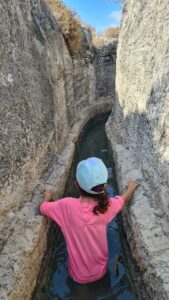 Mindal is walking in the aqueduct
Mindal is walking in the aqueduct
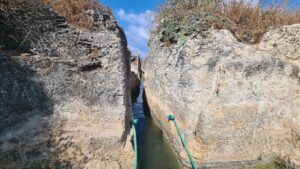 The aqueduct was chiseled into Kurkar rock. The same Kurkar ridge along the shore used to block the water from flowing to the sea (along with dam), creating the Kebarah swamps.
The aqueduct was chiseled into Kurkar rock. The same Kurkar ridge along the shore used to block the water from flowing to the sea (along with dam), creating the Kebarah swamps.
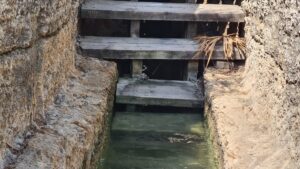 A water curb on the wooden stairs
A water curb on the wooden stairs
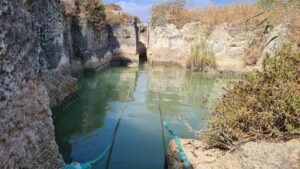 In this point, the aqueduct is expending, creating a small pool (the ropes are added to guide the visitors).
In this point, the aqueduct is expending, creating a small pool (the ropes are added to guide the visitors).
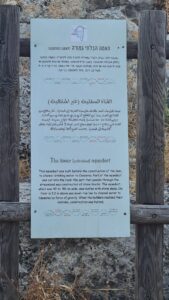 The lower (unfinished) aqueduct explanation sign
The lower (unfinished) aqueduct explanation sign
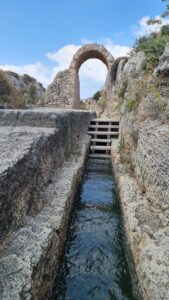 Going up from one aqueduct to the other.
Going up from one aqueduct to the other.
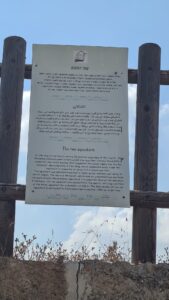 The two aqueducts explanation sign
The two aqueducts explanation sign
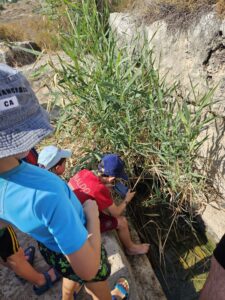 And all the kids are inspecting it from above.
And all the kids are inspecting it from above.
 The rest of the aqueduct, uncovered below Jisser A-Jarka school building.
The rest of the aqueduct, uncovered below Jisser A-Jarka school building.
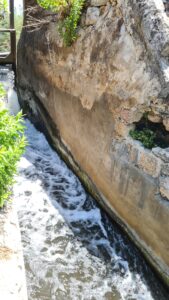 The stream flows through the dam. Because the water is salty, the stream water has not been catched and used as drinking water or for agriculture, leaving Nahal Taninim as in of the last flowing streams along Israel coasts.
The stream flows through the dam. Because the water is salty, the stream water has not been catched and used as drinking water or for agriculture, leaving Nahal Taninim as in of the last flowing streams along Israel coasts.
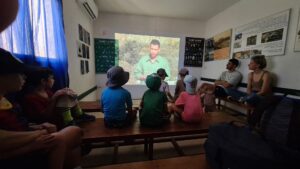 Watching the video at the entrance. We kept those 15 refreshing minutes in the AC to the end of the walk.
Watching the video at the entrance. We kept those 15 refreshing minutes in the AC to the end of the walk.
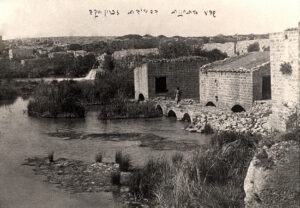 The 7 Ottoman mills on the dam circa 1920 (Source: Haifa university)
The 7 Ottoman mills on the dam circa 1920 (Source: Haifa university)
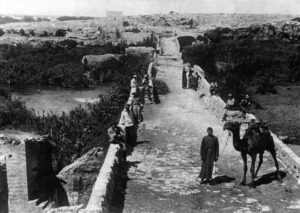 The dam circa 1924 (Source: Haifa university)
The dam circa 1924 (Source: Haifa university)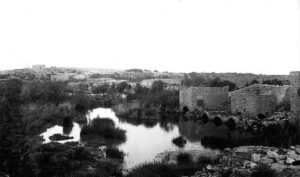 The dam over the swamp on 1925 (Source: Wikipedia.org)
The dam over the swamp on 1925 (Source: Wikipedia.org)

